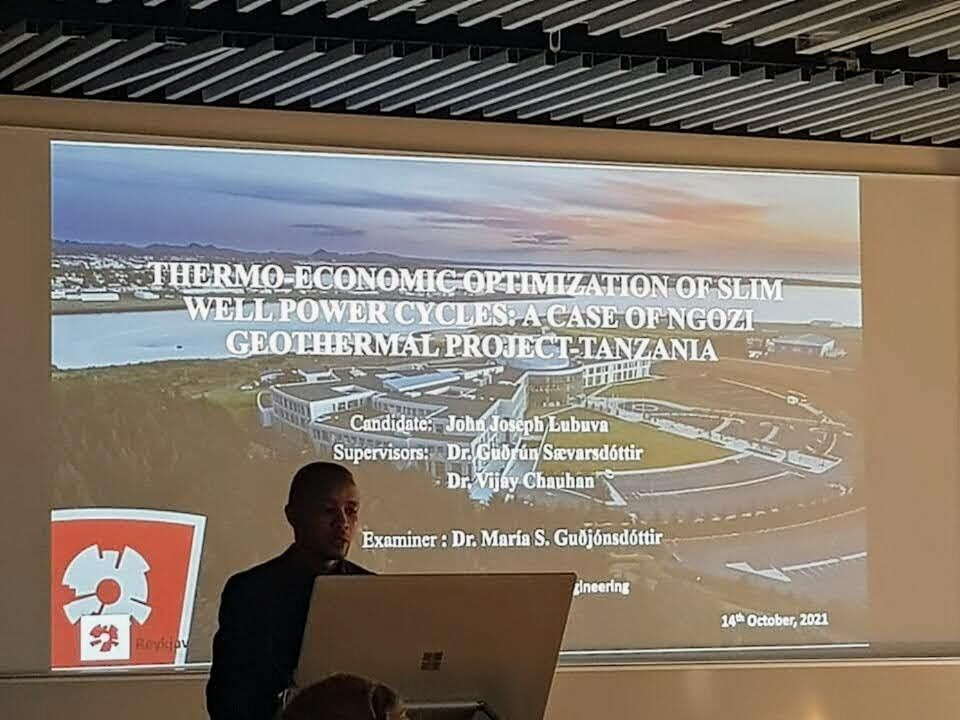MSc Thesis: A Thermo-Economic Optimization of Slim Well Power Cycles: A Case of Ngozi Geothermal Project - Tanzania
REYKJAVIK, October 14 - MSc in Sustainable Energy candidate, John Joseph Lubuva, successfully defended his master's thesis where he performed a thermo-economic optimization of slim well power cycles with a case study at the Ngozi Geothermal Project in Tanzania. John's work was supervised by Dr. Guðrún Arnbjörg Sævarsdóttir from Reykjavik University and Dr. Vijay Chauhan from Reykjavik University with examination by Dr. María S. Guðjónsdóttir from Reykjavik University.

Abstract:
The Ngozi geothermal field located in Mbeya Tanzania, is the main geothermal project that the country focuses on, aiming at producing clean energy in terms of both electricity and heat. The project is an exploration drilling phase.
The present study focuses on developing an optimized strategy in terms of wellbore size selection and power plant technology to be used, for the development of Ngozi geothermal field in Tanzania. To obtain this, a comparative thermo-economic analysis of slim wells against full size wells is done for a selection of power plant cycles. To obtain a realistic estimate of the wellbore output, as required for the thermo-economic analysis, well bore data from Pritchett is used as basis for the analysis. The geothermal field is assumed to be liquid dominated.
Results show that, binary cycle has the highest first and second law efficiencies, produces the highest net-work output, and offers the lowest total cost per unit Megawatt compared to single and double flash power cycles. The binary technology would therefore be the most suitable power plant technology to be employed in Ngozi geothermal prospect. Apart from the capability to produce the highest amount net-work output and lowest cost per unit megawatt compared to the other slim wellbore diameters, the well can support testing.
If a geothermal field is liquid dominated and low enthalpy, slim wells would be more suitable for the power production instead of full-size wells. It can be concluded that in liquid dominated, low enthalpy geothermal fields, where a decision is to be made to drill slim wells, 15 cm well bore diameter slim wells are more suitable. It has also been shown that it takes less time to break even when slim wells are used to produce power compared to full size wells.
The results from the present work output are expected to equip developers including TGDC with adequate information to approach exploration drilling with a holistic and strategic view of minimizing the total investment cost and using exploration slim holes more productively compared to the traditional way. The aim is to improve energy efficiency and prove the business case for start-up geothermal projects with production taking place after drilling and testing successful slim wells instead of just plugging them. Moreover, to use slim well for production, proper casing design must be used to allow the flow of adequate quantity of geothermal fluids for production of electricity.
Congratulations John on an excellent thesis defense!
